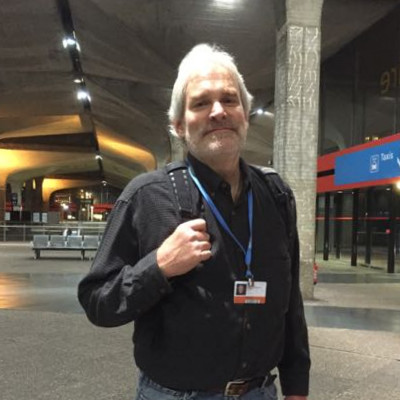
A draft text for a global climate agreement was announced on Thursday morning at COP21, now slimmed down another four pages from the document sent to Paris in late October.
At a press conference on Thursday hosted by Climate Action Network International, Kaisa Kosonan of Greenpeace said that negotiations of the current ADP session has "made progress," especially on defining long-term climate and emissions goals.
Kosonan said that the concept of a 1.5.degree Celsius limit on global warming is gaining wider acceptance, especially after French president François Hollande mentioned it in his speech on Monday. Many leaders, particularly those of small island and other more vulnerable nations, maintain that the goal of 2-degrees Celsius rise over pre-industrial levels will burden their people with suffering and loss from the devastating impacts from climate change, for which they are largely not responsible.
Even if the climate pact endorses a 1.5-degrees Celsius limit, which is by no means certain, or even likely, many scientists say the world is already locked into 1.5 degrees, no matter what happens going forward.
Finance a "sticking point"
Given the potential climate impacts of even a 2-degree rise in global warming, the issue of loss and damage and climate finance continue to be a "sticking point," said Alex Doukas of OilChange International.
"There's a big gap between reality and promise," Doukas said
Citing the $452 billion global annual subsidies given to fossil fuel, Doukas said the "disparity" between developed countries' foot-dragging on climate finance is an unnecessary roadblock to resolving this issue. "Rich countries are speaking out of both sides of their mouth," he said, adding that they can not claim there is no money when it is readily available by shifting the subsidies that "drive the climate crises" to clean-energy development and climate finance for developing nations.
Differentiation vs. symmetry
Raman Mehta of the Vasudha Foundation mentioned talk in the negotiations for a new definition of "differentiation" among national responsibility and action, saying the current concept of bifurcation between rich and poor nations codified in the Kyoto Protocol has "outlived its usefulness."
Mehta cautioned that the idea of "total symmetry" between nations promoted by many in the developed world is "not appropriate" and "needs work at the "ministerial level." Acknowledging that the current pattern needs to change and all nations must do their part, Mehta says differentiation must include each country's responsibility and ability to respond to climate change.
The current COP negotiating session expires on Friday and is expected to be delivered to COP president Laurent Fabius by noon on Saturday.
Ministerial negotiations will begin next week.
Image courtesy of the author

Tom is the founder, editor, and publisher of GlobalWarmingisReal.com and the TDS Environmental Media Network. He has been a contributor for Triple Pundit since 2007. Tom has also written for Slate, Earth911, the Pepsico Foundation, Cleantechnia, Planetsave, and many other sustainability-focused publications. He is a member of the Society of Environmental Journalists














